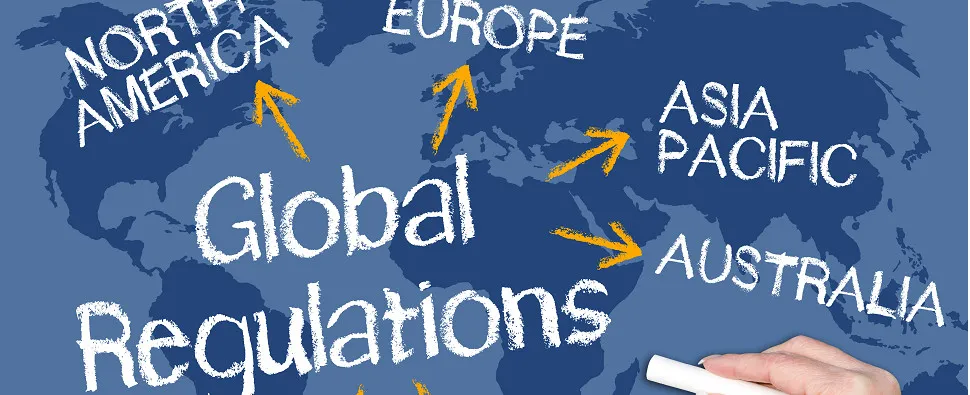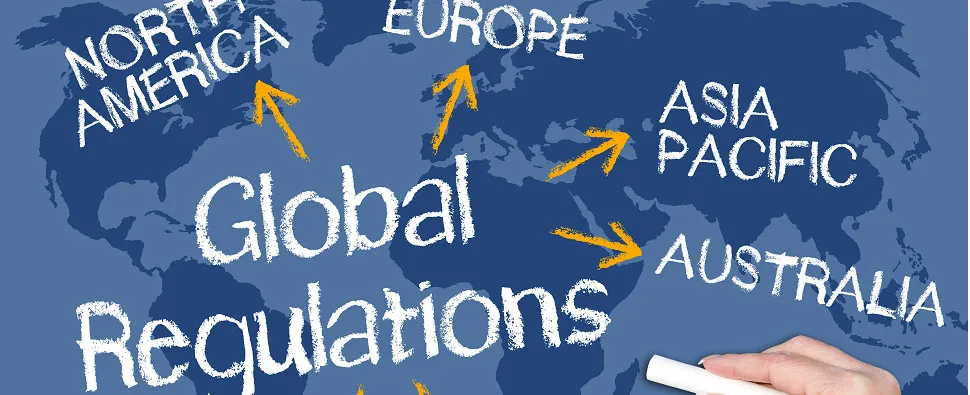
Unlock Success: Compliance with Global Trade Regulations and Standards for Sustainable Growth
Introduction
In the intricate world of international commerce, ensuring compliance with global trade regulations and standards is crucial for businesses aiming to thrive across borders. With a myriad of legal requirements, industry standards, and regulatory frameworks in play, navigating the global trade landscape can be complex. However, adherence to these regulations and standards not only helps in avoiding legal pitfalls but also facilitates smoother operations, fosters trust, and enhances competitiveness in the global market. This comprehensive guide explores the importance of compliance with global trade regulations and standards and offers practical strategies for businesses to manage these requirements effectively.
In an increasingly globalized world, international trade drives the growth and success of businesses, creating vast opportunities across borders. However, with these opportunities come challenges, particularly around navigating the intricate and evolving global trade regulations and standards. Compliance with these regulations is essential not only to meet legal requirements but also to enhance business reputation, mitigate risks, and unlock sustainable growth in the global market.
Global trade regulations are designed to ensure fairness, transparency, and consistency across different markets. They govern the movement of goods, services, and investments, set standards for intellectual property protection, and address environmental and social issues in trade. Compliance with these regulations enables businesses to maintain a competitive edge while building trust with partners, consumers, and regulatory bodies. But non-compliance can result in severe consequences, including fines, sanctions, trade restrictions, and reputational damage.
Businesses must implement strategies to align with both international standards and local regulations in the countries they operate in. These strategies go beyond mere legal adherence—they are integral to operational efficiency and long-term business success. Whether it’s understanding the complexities of free trade agreements, adjusting to shifting market demands, or keeping track of local regulatory changes, businesses must adopt a proactive approach.
This article will delve into the importance of compliance with global trade regulations and standards and explore the essential strategies for businesses to stay ahead. We will focus on the best practices for navigating the global trade environment, such as staying informed about regulatory changes, integrating compliance into business operations, leveraging technology, and fostering collaboration with legal experts. By focusing on these strategies, businesses can reduce risks, enhance their reputation, and open new avenues for success in the global market.
Understanding Global Trade Regulations
Global trade regulations form the backbone of international commerce, setting the rules and guidelines that govern cross-border transactions. These regulations encompass various aspects, including tariffs, customs procedures, trade agreements, and export controls.
Key regulatory frameworks to be aware of include:
World Trade Organization (WTO) Agreements:
The WTO provides a set of rules designed to ensure fair and predictable trade practices. Agreements such as the General Agreement on Tariffs and Trade (GATT) and the Agreement on Trade-Related Aspects of Intellectual Property Rights (TRIPS) are integral to global trade compliance.Regional Trade Agreements:
Agreements such as the North American Free Trade Agreement (NAFTA), now replaced by the United States-Mexico-Canada Agreement (USMCA), or the European Union’s Single Market regulations, offer specific rules and benefits for member countries. Understanding these agreements helps businesses leverage trade advantages and comply with regional regulations.National Regulations:
Each country has its own trade regulations, which can include import/export controls, customs procedures, and national standards. Familiarity with these regulations is essential for ensuring compliance in each market where a business operates.Adhering to Industry Standards
Beyond legal regulations, businesses must also comply with industry-specific standards that ensure product quality, safety, and performance. These standards can be set by international organizations, industry associations, or national bodies. Key industry standards include:
ISO Standards:
The International Organization for Standardization (ISO) provides a framework of internationally recognized standards. Certifications such as ISO 9001 (Quality Management) and ISO 14001 (Environmental Management) are crucial for demonstrating adherence to best practices and maintaining credibility in global trade.Product-Specific Standards:
Different products may be subject to specific standards, such as those related to safety, performance, or labeling. For example, the Codex Alimentarius Commission sets standards for food safety, while electronics may need to meet electromagnetic compatibility requirements.Environmental and Social Standards:
As sustainability becomes increasingly important, standards related to environmental impact and social responsibility, such as the Global Reporting Initiative (GRI) and the Forest Stewardship Council (FSC), play a critical role in global trade compliance.
Navigating Customs and Import/Export Procedures
Effective management of customs and import/export procedures is vital for compliance in global trade. Businesses must ensure that their goods meet all regulatory requirements and adhere to proper documentation and processes. Key considerations include:
Customs Declarations:
Accurate customs declarations are necessary to avoid delays and penalties. Businesses should provide detailed information about the nature, value, and origin of their goods.Tariffs and Duties:
Understanding and calculating tariffs and duties is crucial for cost management. Businesses should stay informed about applicable tariffs and leverage preferential trade agreements where possible to reduce costs.- Import/Export Licenses: Some goods require specific licenses or permits for import or export. Ensuring that all necessary licenses are obtained and kept up-to-date is essential for compliance.
Implementing Effective Compliance Programs
A robust compliance program is key to managing global trade regulations and standards effectively. Key components of a successful compliance program include:
Compliance Policies:
Develop clear policies and procedures for adhering to global trade regulations and standards. These policies should address documentation, reporting, and risk management.Training and Awareness:
Regular training for employees on regulatory requirements and compliance procedures is crucial. Educating staff helps prevent inadvertent violations and ensures that everyone understands their role in maintaining compliance.Monitoring and Auditing:
Conduct regular audits and reviews to assess compliance with trade regulations and standards. Monitoring helps identify potential issues early and enables timely corrective actions.
Leveraging Technology for Compliance
Technology plays a significant role in enhancing compliance with global trade regulations and standards. Key technological tools and solutions include:
- Compliance Management Software: These platforms assist businesses in tracking regulatory changes, managing documentation, and automating compliance processes.
Data Analytics:
Utilizing data analytics can provide insights into trade patterns, identify compliance risks, and improve decision-making.Blockchain Technology:
Blockchain can enhance transparency and traceability in supply chains, ensuring that goods meet regulatory and standards requirements.
Addressing Compliance Challenges
Businesses may face various challenges in maintaining compliance with global trade regulations and standards. Common challenges include:
Regulatory Changes:
Trade regulations and standards are subject to frequent changes. Staying informed and adaptable is crucial for managing these changes effectively.Cross-Border Complexity:
Navigating multiple regulatory environments can be complex. Engaging local experts and consultants can provide valuable insights and support.Cultural and Language Barriers:
Different regions may have unique regulatory practices and languages. Building strong relationships with local partners and utilizing translation services can help overcome these barriers.
Building Strong Relationships with Regulatory Bodies
Establishing positive relationships with regulatory bodies and trade organizations can facilitate smoother interactions and support compliance efforts. Engaging with these entities provides valuable insights, updates on regulatory changes, and opportunities for advocacy and collaboration.
Conclusion
Compliance with global trade regulations and standards is essential for businesses seeking to succeed in the international marketplace. By understanding regulatory frameworks, adhering to industry standards, and implementing effective compliance programs, businesses can navigate the complexities of global trade with confidence. Leveraging technology, addressing compliance challenges, and building strong relationships with regulatory bodies further contribute to successful and sustainable global trade operations. In an ever-evolving global trade environment, a proactive and informed approach to compliance is key to achieving long-term success and maintaining a competitive edge.
As businesses continue to expand globally, compliance with international trade regulations and standards becomes a critical factor for sustainable success. In today’s highly competitive global market, companies that fail to align with these regulations risk not only legal repercussions but also the loss of business opportunities and long-term viability. Therefore, businesses that prioritize compliance with global trade regulations can position themselves as leaders in their industry, build stronger relationships with international partners, and gain a competitive advantage in the marketplace.
The strategies for ensuring compliance are multi-faceted. First, businesses must ensure they stay informed about global trade regulations, including regional trade agreements, customs procedures, tax laws, and intellectual property protections. These regulations can change rapidly, and staying ahead of these changes is essential for avoiding penalties and minimizing trade barriers.
Second, it’s critical to integrate compliance into the corporate culture. This means not only implementing policies and procedures but also educating staff at all levels about the importance of adhering to trade regulations. Effective training programs, continuous monitoring of compliance performance, and regular audits are essential for ensuring that businesses stay on track.
Technology also plays a significant role in enhancing compliance efforts. Leveraging automation tools, digital platforms, and compliance software can help businesses streamline their compliance processes, track regulatory changes, and ensure that they meet international standards. Automation can minimize human error, reduce manual labor, and ensure that compliance tasks are performed accurately and efficiently.
Furthermore, collaborating with trade experts, legal advisors, and industry professionals can help businesses navigate complex regulations. These experts offer valuable insights and guidance, ensuring that businesses not only comply with the rules but also understand their strategic implications.
In conclusion, compliance with global trade regulations and standards is not just a matter of legal necessity but a powerful strategy for achieving success in the global market. Businesses that take a proactive approach to compliance can unlock new growth opportunities, build strong relationships with international partners, and mitigate the risks associated with non-compliance. As global trade continues to evolve, businesses must embrace compliance as a core element of their strategy, enabling them to thrive in an interconnected and dynamic global economy.
Contact Us
For premier Compliance with Global Trade Regulations and Standards contact Chaman Law Firm today. Our offices are conveniently located in Lagos, FCT Abuja, Ogun State, and the UK. We are readily available to assist you with your legal needs. Whether you require consultation, representation, or ongoing legal support, Chaman Law Firm is your trusted partner in navigating Global Trade Regulations in Nigeria.
Call us at 08065553671 or email us at info@chamanlawfirm.com to schedule a consultation.
- International Trade Law
- Contract Law
- Intellectual Property Law
- Customs and Tariff Law
- Dispute Resolution and Arbitration Law
Chaman Law Firm: Your Trusted Legal Partner in International Trade Law
By choosing Chaman Law Firm, you are selecting a team of dedicated professionals committed to providing exceptional legal services tailored to your unique needs. Let us be your advocate and guide in the complex world of trade law, ensuring your interests are protected and your goals are achieved.


